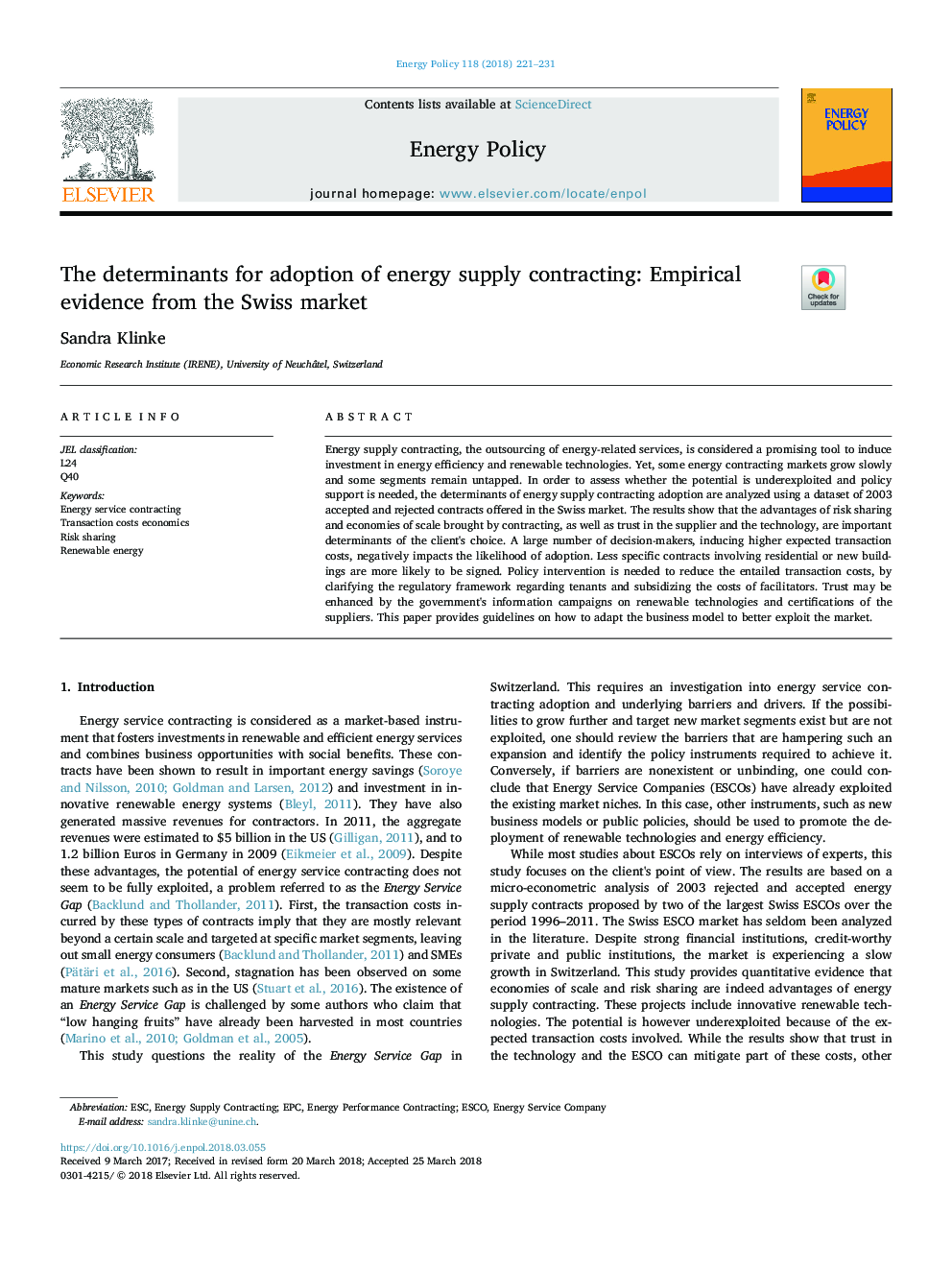| Article ID | Journal | Published Year | Pages | File Type |
|---|---|---|---|---|
| 7397136 | Energy Policy | 2018 | 11 Pages |
Abstract
Energy supply contracting, the outsourcing of energy-related services, is considered a promising tool to induce investment in energy efficiency and renewable technologies. Yet, some energy contracting markets grow slowly and some segments remain untapped. In order to assess whether the potential is underexploited and policy support is needed, the determinants of energy supply contracting adoption are analyzed using a dataset of 2003 accepted and rejected contracts offered in the Swiss market. The results show that the advantages of risk sharing and economies of scale brought by contracting, as well as trust in the supplier and the technology, are important determinants of the client's choice. A large number of decision-makers, inducing higher expected transaction costs, negatively impacts the likelihood of adoption. Less specific contracts involving residential or new buildings are more likely to be signed. Policy intervention is needed to reduce the entailed transaction costs, by clarifying the regulatory framework regarding tenants and subsidizing the costs of facilitators. Trust may be enhanced by the government's information campaigns on renewable technologies and certifications of the suppliers. This paper provides guidelines on how to adapt the business model to better exploit the market.
Keywords
Related Topics
Physical Sciences and Engineering
Energy
Energy Engineering and Power Technology
Authors
Sandra Klinke,
